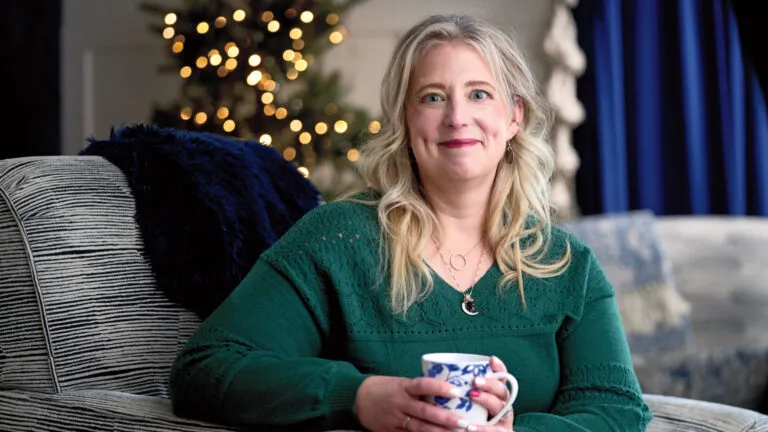In 1937, I went to Germany to pursue a medical degree and to court a lovely and bright young woman I’d met when she was a visiting exchange student at the University of Vermont one year earlier. I soon proposed, and Maria accepted. Before our civil wedding ceremony, the German official who was presiding took Maria aside and cautioned her on the foolishness of marrying an American. After all, by doing so she would lose her German citizenship. Maria only laughed. Love was all that counted in a marriage, she said. She knew that even then.
The first shots of World War II were fired in Poland and we moved to America. For Maria that meant leaving behind her family. In 1944 I completed my medical studies and joined the army as an anesthesiologist. By then Ellen and Barbara, the first two of our six children, had been born. Maria gave up her own career plans to care for the children.
“Love bears all things, believes all things, hopes all things, endures all things.” Those lines by Saint Paul (I Cor. 13:7), spoken at so many weddings, were absent at our bare-bones civil ceremony. But Maria had always loved that passage. To her, I think, it justified all the sacrifices she’d made to build our life together. Over the years, when faced with a crisis, Maria’s solution was to pray about it. When she did, she often turned to Saint Paul.
During the 1980s, Maria started becoming more and more forgetful around the house. In 1988, the year of our fiftieth wedding anniversary, I convinced her to have some medical tests. The diagnosis was Alzheimer’s disease.
As a doctor, I had seen the relentless mental destruction that Alzheimer’s inevitably brings. I thought my medical training might make it easier for me to handle the experience. I was wrong. The deterioration of this once vital and capable woman, without whom none of my life’s dreams would have been realized, was harder to bear than I could ever have imagined.
Following Maria’s example, I turned to prayer. Opening our Bible to the lines that had seen us through so many trials, I began to read aloud. “Love is patient and kind … Love bears all things, believes all things, hopes all things, endures all things.”
How could I best show Maria my love, now when she needed it most? The answer came in a flood of memories—memories of all she’d done. I grabbed a pen and began to do some counting. Fifty years of marriage and six kids meant something like 50,000 meals cooked and served, 920,000 dishes washed, 230,000 diapers changed. I wrote out number after number, listing all the tasks that Maria had cheerfully and uncomplainingly performed for our children and me over the years. The numbers were just guesswork, of course, but writing them down helped make concrete for me the scope of Maria’s labor of love.
Lord, I prayed, I don’t think I ever really understood the sacrifices Maria made before. Let her illness be a chance for me to repay her in some way.
Since that day, that is just what I have tried to do. Moment by moment, I have learned to treat each small service I perform for Maria—from washing sheets to cleaning up a spill to remaining patient when she is having a bad day—as an active prayer of thanks. A chance for me to consciously give back to Maria something of what she has given me.
“Love bears all things, believes all things, hopes all things, endures all things.” I know now that those words aren’t mere sentiments, but truths that go to the very heart of what it means to share one’s life with another person, in sickness and in health.
Maria now has considerable trouble forming complete sentences, but there is one that she still can, and does, say. She will take my hand and give it a squeeze, and tell me “I love you.” In those three words, I see the proof of something else that Saint Paul says in First Corinthians. It is the statement which follows the passage that concludes with love “endures all things,” and it is, I feel, the truest one of all. “Love never ends.”
This story first appeared in the July 2001 issue of Guideposts magazine.





